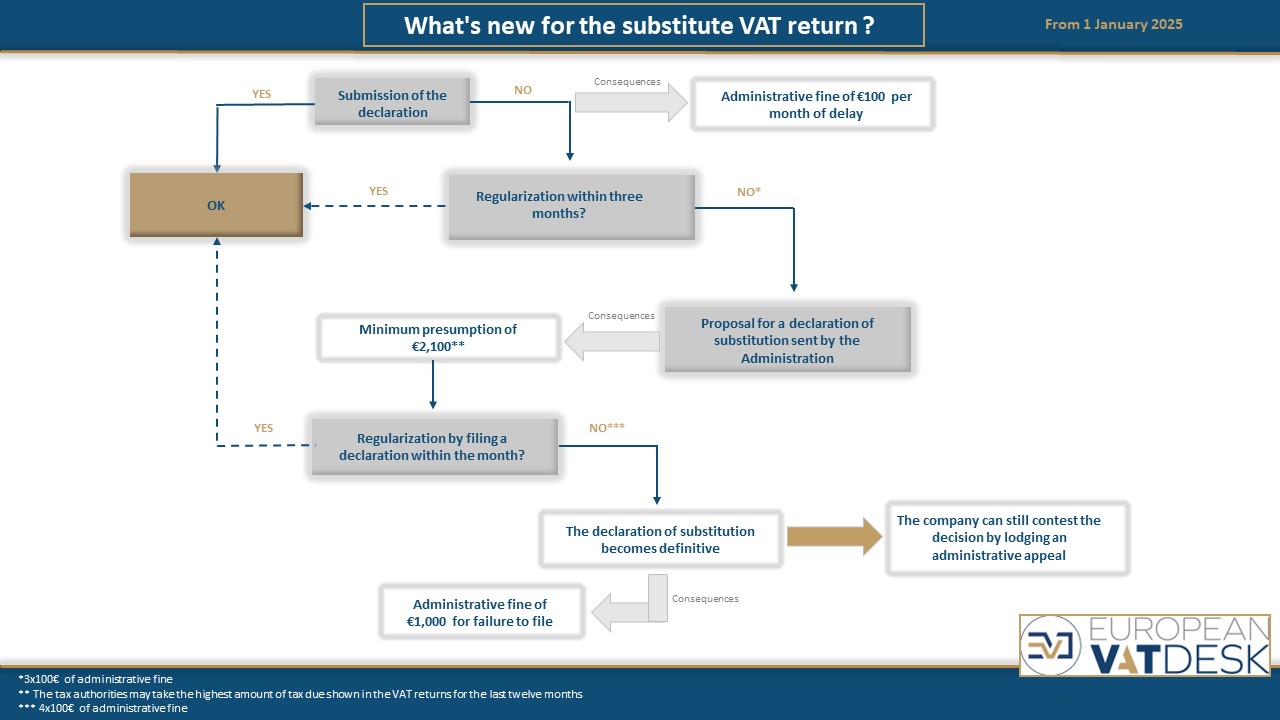The Author of the Article
Not filing your VAT return
It can happen that a company, in good faith, fails to file one of its VAT returns. Take, for example, the case of an accountant who falls ill for several months and cannot afford to delegate the task. Or when a company suffers a major event such as a fire, flood or cyber-attack that destroys part of its premises and accounting data. Priority is then given to ensuring business continuity and safeguarding the remaining data. The preparation of VAT returns may be postponed due to the urgency of the situation and the need to rebuild lost information.
The Belgian tax authorities are not necessarily lenient, and until now have automatically applied an administrative fine of €100 per declaration and per month of delay (with a maximum of €1,000) in the case of late filing, and €1,000 in the case of non-filing.
Summary diagram

Tougher penalties from January1, 2025
As of January 1, 2025, the administration has decided to tighten the rules of the game.
If a company fails to submit its VAT return by the statutory deadline, the tax authorities will not only impose a fine after three months, but will also send a proposal for a substitute return, as is the case in Luxembourg.
How is the substitute VAT declaration calculated?
Essentially, this proposal consists of claiming from the defaulting company the highest amount of VAT due, as shown in the VAT returns for the last twelve months, with a minimum of €2,100.
For example, a company that invoices its customers only in January can declare €100,000 in VAT payable that month. For the rest of the year, it benefits from a tax credit. The accountant, suffering from an unforeseen illness, fails to file the June return. Three months later, the tax authorities send a proposal for a substitute return, claiming an additional €100,000.
What should I do?
From the date of receipt of the proposal, the company has one month to submit its missing VAT return and thus cancel the substitution proposal. If this deadline is not met, the substitution declaration becomes definitive. The company then has the option of contesting this decision by means of an administrative or judicial appeal.
The VAT expert's eye
The tax authorities' main problem is that they are determined to align their new VAT policy with their income tax practices. And this is certainly its main weakness. VAT, being a European tax with its own rules, cannot be demanded by simple presumption without contradicting decades of European jurisprudence.
And that is essential to know.